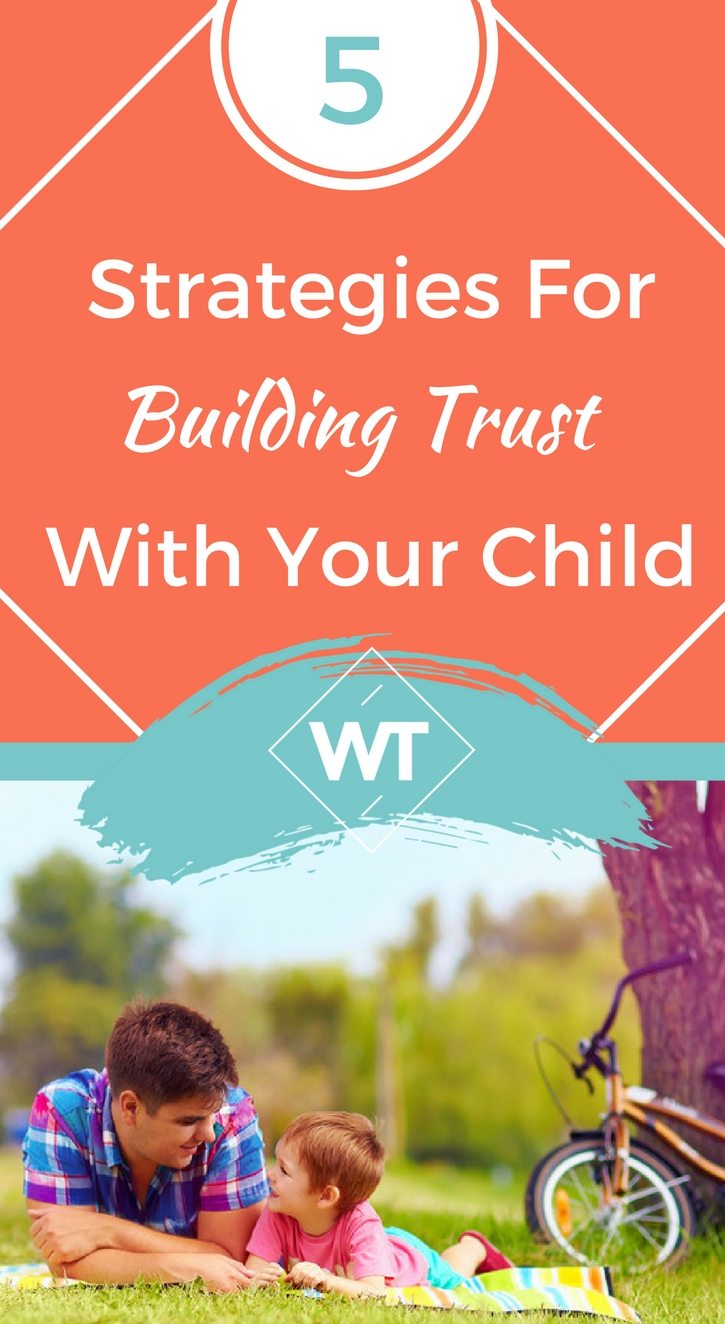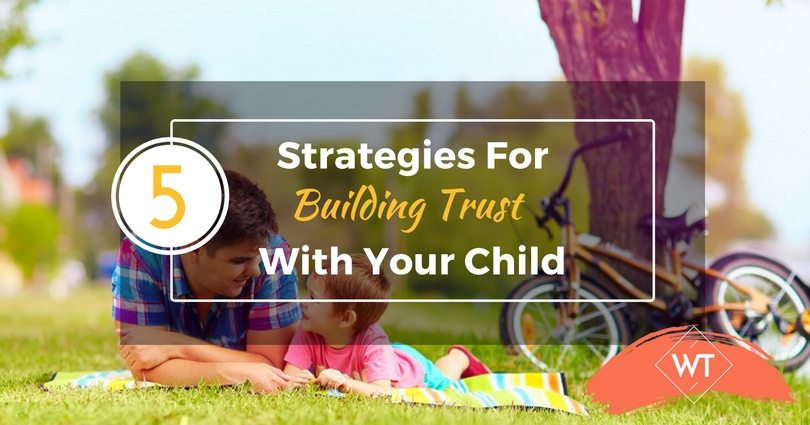5 Strategies for Building Trust with Your Child

“Mom, what does ‘building trust’ mean?” asked my daughter one day after school. “Today, we heard a story,” she continued, “the moral of which was: not to break anyone’s trust. I liked the story but couldn’t understand what I could do to not to break anyone’s trust. So what does it mean?”
Her question puzzled me. Unlike explaining simple manners or rules of etiquette, explaining moral values can really be challenging. I can instantly teach her good behavior, but demonstrating trustworthiness is a time-consuming, continuous job. Nonetheless I knew it was an important moral value that I wanted her to learn, so I drew up a list of 5 ways to show and explain to your child the true meaning of trust.
Building trust with your child is very important. It is the major building block to any relationship. This truly promotes cooperation and reduces rebellion.
Parents can only give good advice or put them on the right path, but the final forming of a person’s character lies in their own hands. ~ Anne Frank (Tweet this)
Even a quick Google search shows being honest and building trust to be one of the top five 5 moral values expected in every person. This reinforces the idea that trust should be continuously nurtured in a human being.
The moment a child is born, the bond of faith starts building up. But as parents, we can’t just sit back and say, “My child trusts me.”
Our actions and words always need to match to explain the true and honest meaning of being trustworthy. A seed of doubt can grow into a big tree of low self-esteem. So together let’s look at the ways in which we can help our children to be trustworthy in this harsh world:
1. Straight talk
Being honest is the most important element in building trust. Manipulative words and actions place doubt in the child’s mind and will eventually keep them from trusting you. Children are very smart in gauging right and wrong. So don’t try to spin the truth. One way you can do this, while still holding on to an adult-level secret is to simply acknowledge that there is some pressing issue and since you love the child and don’t want him/her to be bothered by it, you can’t share the information. It’s just an example, but the concept is there. You don’t have to just brush them off… you simply need to explain it differently. Additionally assure him/her that soon you will sort out everything and then no one will have to worry.
Lesson: Self-confidence and mutual respect are then further developed in the child.
2. A commitment is a commitment
Another important lesson towards building trust is to be committed. Parents act as a role model for their children so sometimes when we falter, children falter.
Kids have an inborn art of reading the body language of people around them. They quickly catch emotions and immediately sense when we make excuses. So when you make a commitment, try your best to fulfill it. If for any reason, you can’t keep your promise, then provide an honest reason instead of excuses. Acknowledge that you could not fulfill the promise, but do not blame others. That sets the wrong example.
Lesson: Parents can sometimes make mistakes too since we are all human beings. The important thing is to learn from the mistakes.
3. Listen first
Many of us make the mistake of hearing our children, but not really listening to them. The first step is to switch on your “listening” mode. In the process, understand what the child is telling you. Don’t assume things. Also, go a step further to understand the feelings of the child before coming out with any solution or passing a judgement. Understand and try to determine if the child really is worried or is just interested is telling you something. Many times the child just wants you to listen, perhaps to simply arrange things in a particular order in his/her brain. So evaluate instead of diagnosing.
While reading e-mail, my husband Sam was simply nodding in response to my daughter’s questions. My daughter quietly left the room. When Sam realized that she looked upset, he went after her to find out the reason.
My daughter replied, “Dad, I felt insulted that your laptop was more important than me. I was asking which doll was looking prettier and you were simply nodding.” Sam realized that he was just hearing the babbling of his daughter in the background, but he wasn’t really listening to what she was saying.
Lesson: Children learn to better identify their emotions and also develop a problem-solving attitude.
4. Demonstrate respect
Show sincere care and kindness while the child talks. Let the child feel respected by getting your full attention. The child needs to know that he/she is equally important. None of us trust a person who doesn’t show respect. Because a child is young & innocent to us, we tend to forget that these little angels also have emotions and a sense of dignity. Using derogatory remarks or not respecting their thoughts gives them enough reason not to trust.
Lesson: A child’s self-esteem gets boosted. Additionally the child learns to respect others.
5. Create transparency and practice accountability
Always remember to give good information and take charge of your actions. If understanding everything is difficult for the child, then acknowledge that you can’t share all the details as it might be too difficult to understand.
To be in your children’s memories tomorrow, You have to be in their lives today. ~ Barbara Johnson (Tweet this)
Assure them that you are not trying to hide something, but are protecting them from getting hurt. Always focus on clear communication and the usage of simple words. The more you twist the information, the more confusion prevails and hence mistrust develops.
Lesson: Your child learns to express themselves honestly and clearly.
6. Building trust is a process
Just as you wouldn’t expect your child to grasp any other “grown-up” concept immediately, the same holds true here. But that’s actually a good thing. The time we take in the trust-building process isn’t time that is wasted. Instead, every day becomes a day filled with quality interaction and genuine, honest conversation with your young one. Cherish these days and this time together, and realize that you are actually building truly admirable characteristics in them. Yes, this takes time… but because it takes time means that they won’t be characteristics that are easily torn down.
The final lesson is for you. Building trust with them now means they will come to you later in life when they most need it.









Leave a Reply